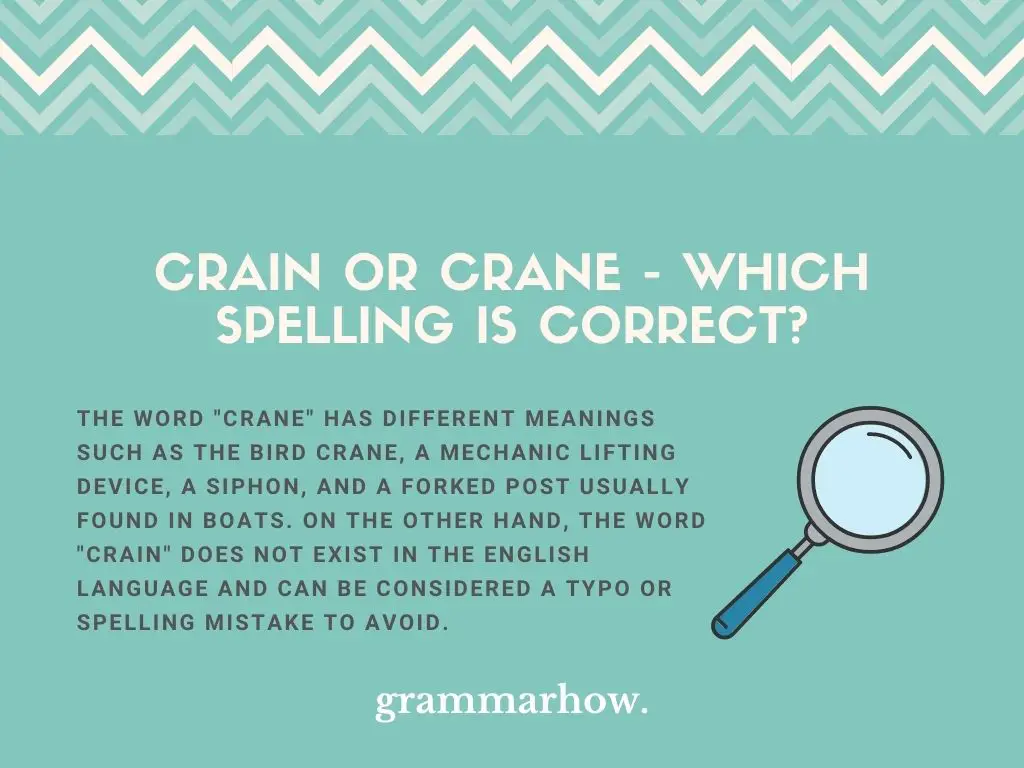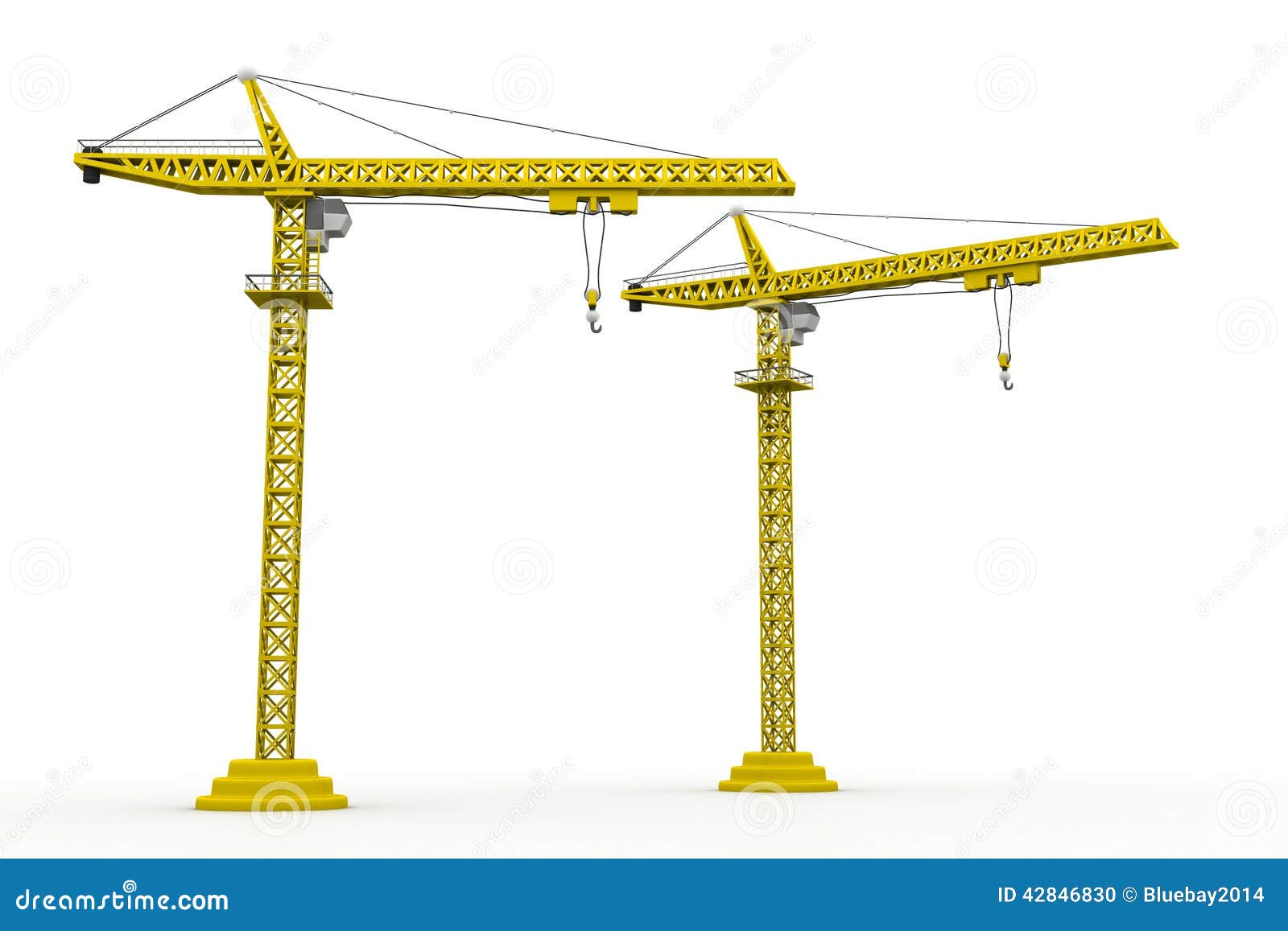Crain Or Crane: Unraveling The Spelling Confusion
Have you ever stopped to think about words that sound alike but look quite different when written down? It happens a lot, doesn't it? One mix-up that pops up for many people involves the sounds "crain" and "crane." It's a common point of confusion, and frankly, it's easy to see why. These two terms, or what seem like two terms, can truly make you pause and wonder which one is the right fit.
It's interesting, in a way, how our ears can trick our minds when it comes to spelling. The sounds are so similar, you know? So, it's not surprising that folks often use them as if they mean the same thing. But when you put them on paper, or try to find them in a book of words, one of them just doesn't quite measure up.
This little piece aims to make things clear once and for all. We're going to look closely at why this mix-up happens and, more importantly, figure out which word holds the true meaning in our language. It’s pretty straightforward, actually, when you get down to it.
Table of Contents
- The Right Word: Crane and Its Many Forms
- Crain: The Common Misstep
- Why the Confusion Persists
- Putting It into Practice: Remembering the Right Spelling
- Frequently Asked Questions About Crane and Crain
The Right Word: Crane and Its Many Forms
When we talk about the proper spelling, there's really only one choice that has a real meaning in the English language. That word is "crane." It’s quite a versatile word, too, referring to a couple of very different things. So, it's not just one idea, but two distinct ones that share the same correct spelling. This is pretty common in English, you know, where one word can stand for multiple concepts.
The Graceful Bird
One of the main things "crane" refers to is a kind of bird. These are truly impressive creatures, very tall with long, thin legs and an equally long neck. They belong to a group of birds called Gruiformes and are part of the Gruidae family. You might see them wading in shallow waters, looking for food. They often resemble herons, but they are, in fact, more closely related to birds like rails. Their appearance is, in some respects, quite striking, making them easy to spot in their natural settings.
Imagine seeing one of these birds, perhaps standing perfectly still in a marsh. They have a certain elegance, don't they? The way they move, or don't move, is very distinctive. This bird, the crane, has been a part of human stories and art for a very long time, too, symbolizing different things in various cultures around the world. It’s a rather iconic creature, you could say.
The Powerful Machine
Then, there's the other meaning of "crane," which is completely different but just as important. It's a large machine, one that you often see at building sites or in big industrial areas. These machines are built for lifting very heavy things, like steel beams or big sections of concrete. They have a long arm, or boom, that reaches high into the air, and they use cables and pulleys to move materials from one spot to another. It's a powerful piece of equipment, absolutely essential for much of our modern construction. You can learn more about how these machines work by visiting a reputable dictionary resource, perhaps like Merriam-Webster's definition of crane.
When you think about it, the name makes a little sense for the machine, too. The long, reaching arm of the machine is, in a way, like the long neck of the bird, isn't it? It stretches out to grab things. In French, by the way, the person who operates one of these big lifting machines is called a "grutier." It's a pretty specific job, and it takes a lot of skill to handle such a large and powerful tool. So, the word "crane" really covers a lot of ground.
Crain: The Common Misstep
Now, let's talk about "crain." This is where the clarity really comes in. When someone asks, "is crain a word?" the honest answer is no. It simply isn't found in the English dictionary. It has no accepted English meaning, you see. It's not a word that refers to anything, not a bird, not a machine, not anything at all. It's just a collection of letters that happens to sound like another word. This is, quite frankly, a pretty common occurrence with misspellings.
More often than not, when you see "crain" written down, it's actually a mistake. Someone likely meant to write "crane" but got a letter or two mixed up. It's a spelling error, pure and simple. There are, for instance, a whole lot of words that sound similar or have similar letter patterns, like "brain." But "crain" itself just doesn't have a place in our language. It’s just not there, apparently.
It's important to remember this, because relying on "crain" can lead to confusion in your writing and communication. If you're trying to describe a tall bird or a piece of construction equipment, using "crain" won't get your message across clearly. It will, in a way, just leave your reader scratching their head. So, for clear communication, knowing that "crain" isn't a word is pretty helpful.
Why the Confusion Persists
So, if "crain" isn't a real word, why do people keep using it, or getting it mixed up with "crane"? A big part of it comes down to how words sound. As we touched on earlier, "crain" and "crane" are phonetically very similar. When you say them out loud, they sound almost exactly alike. Our brains, you know, are pretty good at processing sounds, but spelling can be a whole different ballgame. This phonetic similarity is, quite frankly, the root of much of the trouble.
Another reason for the mix-up is simply a lack of awareness. Not everyone knows that "crain" isn't a recognized word. They might have seen it written incorrectly somewhere, or heard it spoken, and just assumed it was an alternative spelling. It's a bit like a game of telephone, where a small error can spread. The text I reviewed, for instance, makes it clear that "the terms crain and crane are often used interchangeably, leading to confusion." This happens all the time, doesn't it?
Also, in the fast-paced world of digital communication, typos are, like, really common. People type quickly, and sometimes fingers slip. A quick "crain" instead of "crane" can happen in an instant, especially when you're not paying super close attention to every letter. This kind of casual writing, while convenient, can sometimes reinforce incorrect spellings. It's a small thing, but it adds up.
Putting It into Practice: Remembering the Right Spelling
So, how can you make sure you always use "crane" correctly and avoid the "crain" pitfall? It's actually pretty simple once you get the hang of it. Think about the "e" at the end of "crane." That "e" is, you know, a bit like the long neck or the long boom of a crane. It helps stretch the word out and gives it that distinct sound. It's a small visual cue that can make a big difference when you're writing. This little trick can really help it stick in your mind.
Another way to remember is to associate "crane" with its two main meanings. Think of the graceful bird, or the powerful lifting machine. Both of these are real things, and they both use the "crane" spelling. "Crain," on the other hand, doesn't bring any specific image to mind because it doesn't represent anything. It’s just, like, an empty word. If you can connect the spelling to a concrete image, it becomes much easier to recall the correct form. This is a pretty effective memory tool, honestly.
When you're writing, especially if you're unsure, it's always a good idea to take a moment and double-check. A quick look at a dictionary or even a spell-checker can clear things up instantly. It's a small habit that can improve your writing a lot. We all make mistakes, of course, but taking that extra second can help you present your thoughts clearly and accurately. It’s a bit like taking a breath before you speak, you know, to make sure you say just what you mean. You can find more helpful writing tips by exploring various sections on our site, like our main page, or even learning about how to choose the right words for things like affordable electric vehicles on this specific page.
Frequently Asked Questions About Crane and Crain
Is "crain" ever a real word in English?
No, "crain" is not a recognized word in the English language. It doesn't have a meaning or a definition found in standard dictionaries. It's typically a misspelling, usually of the word "crane." So, if you're wondering, the answer is pretty clear on that one.
What are the two main meanings of the word "crane"?
The word "crane" has two primary meanings. First, it refers to a large bird with long legs and a long neck, part of the Gruidae family. Second, it means a large machine used for lifting and moving heavy objects, commonly seen at construction sites. Both of these are very distinct, but they share the same correct spelling, which is kind of interesting.
Why do people often confuse "crain" and "crane"?
The main reason for the confusion is that "crain" and "crane" sound very similar when spoken. This phonetic likeness often leads people to mistakenly use "crain" when they mean "crane," especially in writing. It's a common error that happens because of how our ears interpret sounds versus how words are actually spelled. It's a pretty natural thing to mix up, you know.

Crain or Crane - Which Spelling Is Correct? (With Examples)

Amazing Power Of Crain - Escorts Crane Lifting Heavy Goods - Crane

3d crain construction stock illustration. Illustration of roof - 42846830